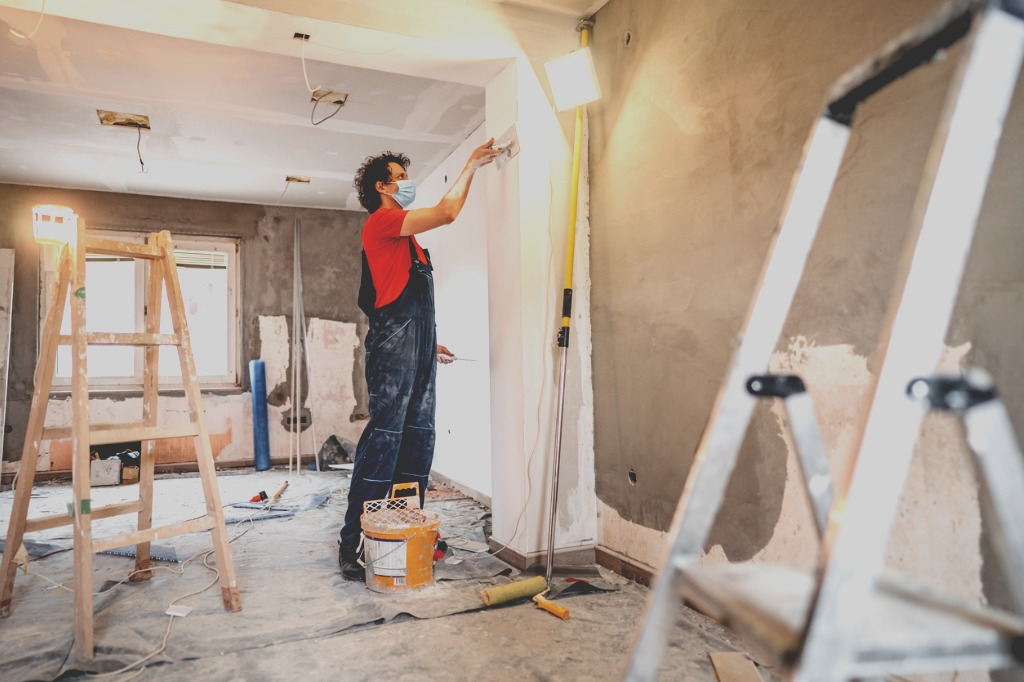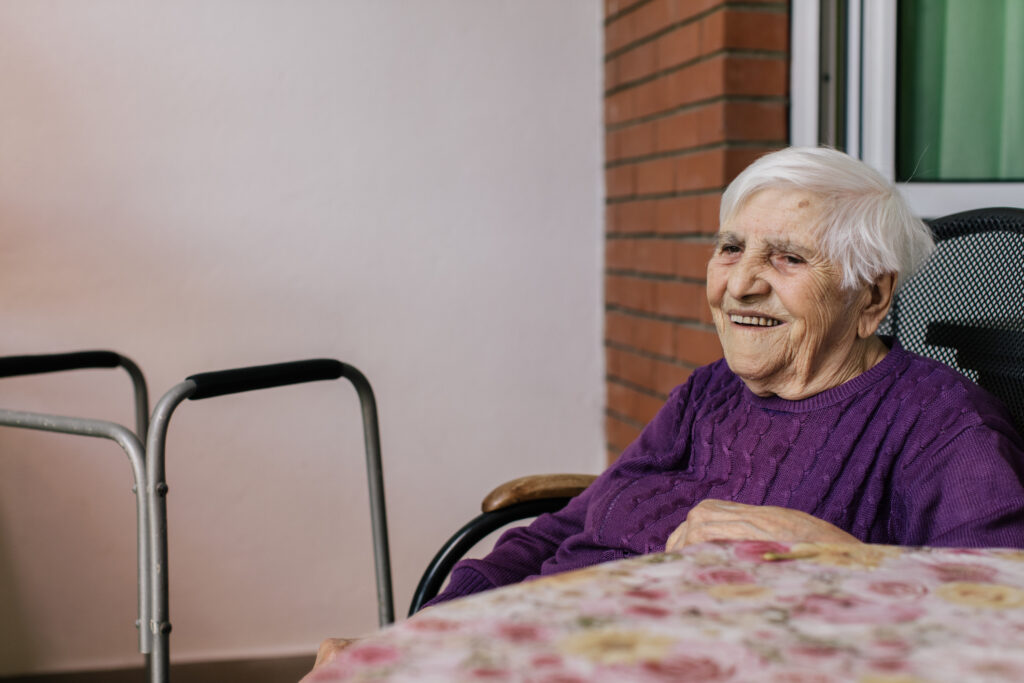
“Charities shouldn’t be scared of taking out a loan”
Trevor Nicholas, CEO of Aspire Ryde, shares his experience of taking out a loan, and explains why he thinks charities need to be prepared to borrow money to move forwards.
Can you tell us about the property you’ve bought?
It’s a large retail site on Ryde’s high street. The landlord gave us free access to it initially. Then he got planning permission to turn the top floors into accommodation, so we offered to buy the whole building.
We plan to continue using the ground floor as a charity shop and base for our services, which include paint recycling and a bike repair scheme. Part of the first floor will be used as a meeting space for community groups. We’re redeveloping the second floor into five self-contained flats with shared living spaces, to use as move-on accommodation.
Why did you decide to develop the flats?
Aspire Ryde is about bringing people together, reducing isolation and helping to improve people’s mental health. But we don’t just want to tackle the symptoms; we want to address the causes and help people to break free from the negative cycles that keep them isolated.
Housing is a huge part of that. It’s one of the biggest needs here on the Isle of Wight due to the shortage of affordable homes. Property prices were already rising before the pandemic, but the freedom to work from home means more people are wanting to move out of the cities to places like the Isle of Wight, which has driven a huge rise in purchase and rental prices. It also took properties out of the housing stock. Lots of large, Victorian properties had been converted into flats, but people are now converting them back into single homes. Other properties are being bought up to use as holiday accommodation. As a result, there are fewer residential properties available.
People on a low income were already struggling to afford accommodation, but that issue is now much greater. We’re seeing families with two good incomes unable to find somewhere to live.
There’s a particular shortage of housing for people who need a bit more support, and that’s what we’re trying to help with, albeit on a small scale. The new flats will likely be for young men who are leaving the care system.
What made you choose Charity Bank for your property loan?
I was put in touch with Charity Bank by our town mayor, who’d worked with them in the past. I’d heard of the bank before and was happy with what they were offering us, so we decided to go with them.
How did you find the loan process?
It was about what I was expecting, and Charity Bank guided us through the process, right from the initial business planning stage to completion. Our main contacts, Mark and Lisa, were fantastic at pushing things forward and supporting us with whatever issue we were trying to deal with. They were always there to talk things through and offer support.
Were there any challenges?
The landlord initially gave us three months to get everything in place. The purchase ended up taking two years, so that was challenging! There were a lot of delays due to legal complications and all the different parties that were involved. We were awarded a community housing grant, but it only covers the accommodation, so we’ve had to keep finances separate for the different parts of the building, which has added an extra layer of complication.
There were some worrying moments along the way when we weren’t sure whether it was ever going to happen. The owner started getting jittery about the time it was taking, so it was really useful that Charity Bank were prepared to get involved in conversations. That gave the landlord assurance that we were serious about buying the property.
Was it helpful to work with a loan provider that specialises in the charity sector?
Yes, absolutely. I genuinely don’t think that a high street bank would have had the buy in to get everything done; there was a lot of work needed for the size of the loan. Charity Bank were invested in the project not just the loan.
Will the money from the properties and shop cover your loan repayments?
We’ve got a two-stage loan. At the moment, our repayments are covered by the income from the shop. The payments will increase once the redevelopment is completed, but the income from the flats will cover the increase. It should also cover the cost of paying a manager for the building and contribute to the charity’s overheads.
Are you concerned about rising interest rates?
We were just coming up to final completion when the economy went to pot. There was an ‘interesting’ trustees’ meeting about how high rates might go and what that would mean for us. But we did our projections and could see that we could still cover repayments. We’re in this for the long term, so if the flats aren’t making a financial contribution to the charity for a year or two, it’s not a huge issue.
We’ve expanded so fast as an organisation. When I started three years ago, we had eight staff, only two of whom were full time, and our turnover was around £200,000 a year. We’ve now got 60 staff and are looking at a turnover of around £1.4 million.
Were the trustees on board from the start?
There were certainly a lot of questions, including whether we should be borrowing money as a charity at all. But ultimately, they could see that it was the right thing to do and the decision to proceed was unanimous.
Do you think owning the property will help to strengthen Aspire Ryde as a charity?
I do. And that was a big part of the debate with the trustees. The other property we own is a Grade II-listed church building, which has various issues and requires a lot of upkeep. So having a second building is really important, because if anything does happen to that first building, we’ll still have a base and presence on the high street.
Do you think ethical banking is important for the social sector?
It’s really important. Charities shouldn’t expose themselves to ethical dilemmas about where their money comes from and what it might be linked to. Otherwise, supporters could start asking tricky questions: “You’re a charity, why are you borrowing from a bank that does X, Y and Z?”
What would you say to other community housing providers who are thinking of taking out a loan?
Have a realistic timescale for the purchase. These things always takes longer than you think they will. Listen to the guidance you’re given and don’t assume you’ll be able to push the purchase through quicker.
Beyond that, I’d just say, don’t be scared of taking out a loan. I think a lot of charities are wary of borrowing because it doesn’t feel like a charitable thing to do. But if you’ve got a sound business case and a sound reason for wanting a loan, then it isn’t something to be afraid of. At Aspire Ryde, it’s enabling us to do more of the things we want to do.
If you need a loan for your community housing project, please call Charity Bank on 01732 441919.
About Charity Bank
Charity Bank is the loans and savings bank owned by and committed to supporting the social sector. Since 2002, we have used our savers’ money to make more than 1400 loans totalling over £605m to housing, education, social care, community and other social purpose organisations.
Nothing in this article constitutes an invitation to engage in investment activity nor is it advice or a recommendation and professional advice should be taken before any course of action is pursued.


